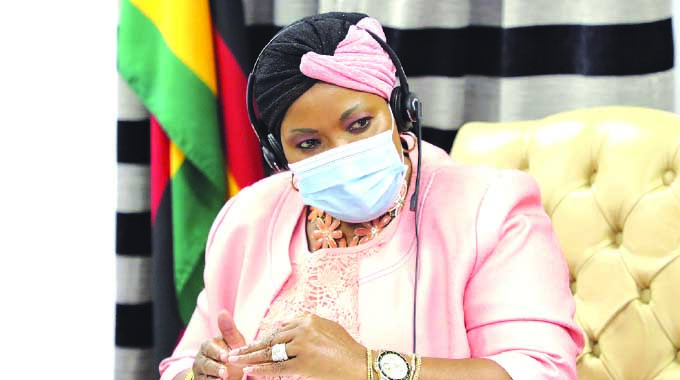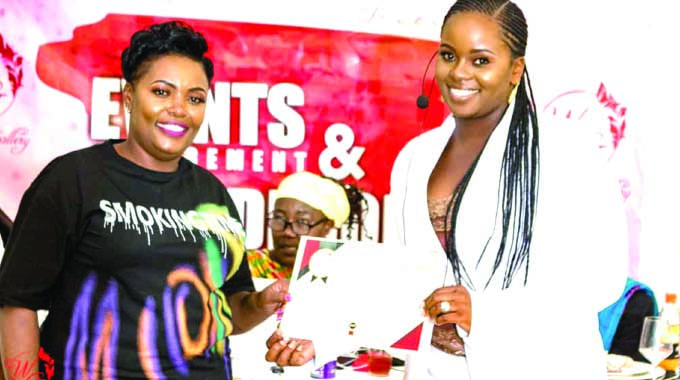EDITORIAL COMMENT: Sports need to work hard to avoid lockdown

The fourth wave of Covid-19 now gripping much of Southern Africa, including Zimbabwe, with the Omicron variant creating extra complications, will prove a major test for the sports communities who have an opportunity to show they are as good as the commercial sectors in coping with the infections.
In the previous three waves sports practices and events were cancelled. That happened with the commercial sectors as well in the first two waves, but in the third wave in the middle of this year the commercial businesses were able to stay open with the productive sectors on condition they followed extremely tight rules. This worked and the third wave was no worse nor no better for that decision having been made.
Since then those playing sport have been allowed to do so long as everyone at a practice session or a match is vaccinated, and that means fully vaccinated with both shots, and last month limited entry for spectators was granted so long as everyone was fully vaccinated.
A number of tricky decisions now have to be made by the Government’s health advisors and then by the Government itself after they have received that advice.
Basically sports clubs, team and associations have had a very bad time for almost two years since Covid-19 was first identified in Zimbabwe. They have managed to claw something back over the last few months and obviously they would like to maintain this lodgement in the realm of partial normality.
But a lot depends on the sports administrators and those playing sport.
The Premier Soccer League this week raised the linesman’s flag after some cases of Covid-19 were found in some clubs after the latest round of tests.
In one sense this a positive development, since it shows that clubs have been following the rules which require, on the long list of mandatory behaviour, routine tests for Covid-19. The players who tested positive will obviously have to isolate until cleared, although being in general younger and fitter people who are probably vaccinated they are unlikely to become very ill.
But it does show how important it is for clubs and players to take Covid-19 infection very seriously indeed and to follow all the standard rules of masking, social distancing and sanitising when not actually on the field playing. Those at a club who are infected are highly unlikely to have become infected running in the open air, or even skidding into a tackle.
They almost certainly were infected doing the social rounds or on their way to and from the practice sessions or games.
This is important, as it suggests that banning sport might not have much, if any, effect on infection rates. But it also means that sports people need to take extra-special care.
Zimbabwe, along with the rest of the world, has been learning a lot about managing Covid-19 infection since early last year.
On the economic front, in the first wave, the Government after a near total shut-down started very carefully opening up the farming, mining and industrial sectors. These tend to have little interaction with the public and usually work from premises with highly controlled access, so it was easy to keep those who did not belong out.
By the third wave the more sophisticated methods were tried, allowing the whole economy to remain open with the exception of restaurants, bars and nightclubs but putting in and enforcing other controls. These, technically, are still there although the social business sectors, which include sports, were allowed to re-open with vaccination.
The sports associations are going to have to enforce, rigidly, the rules if they want to be able to stay open during the present wave and may well have to bar spectators.
While sports teams can, plausibly, argue that they can insist of social distancing on the seating and can stop spectators crowding together, the fact remains that they can only do this at the gates of the venue and within the venue. What people do on their way there and their way back is beyond control by a sports club.
If spectators are going to be allowed in then they are the ones who are going to have to persuade the authorities that they ca be trusted.
International competition now becomes much harder and may even, for all practical purposes, impossible. We have already seen the sudden cancellation or a women’s cricket qualifying tournament and foreign participants unable to take part in motorsport because of the 10-days of quarantine needed on arrival.
With Southern Africa almost sealed off by the rest of the world, in a knee-jerk reaction not really driven by science when the Omicron variant was announced, it will be difficult for Zimbabwean sports people to even buy an air ticket to get out of the region, let alone be allowed into another country.
And the quarantine requirements in Zimbabwe, a far more measured response than a total ban. Do impose those 10 days.
Part of the problem, at the moment, is that no one has much idea of what additional problems, if any, the Omicron variant can produce.
As the data builds up and public health experts can get a grip on just what his new variant can produce, it might well become easier to move around more and rely more on testing than on physical blocks or extensive quarantine.
But in the mean time Zimbabwean sports persons and their administrators who would like to maintain as much as possible need to be very careful, ensure that nothing they do adds significantly to risk, and world extensively with medical experts to ensure that their particular area is in the forefront of optimum management.










Comments